Iran’s Hugo Chavez?
From "Not the Country Club"* blog:
Despite massive spending by the upper classes of Iran, and likely covert interference by the US Government and other Western governments and their regional lackeys, the people’s candidate, Mahmoud Ahmadinejad, has been elected as Iran’s President. The course of his rise to power, as well as his background, viewpoints, and proposed policies, are so reminiscent of those of Venezuela’s Hugo Chavez that the similarity cannot be accounted for simply by charging Ahmadinejad with populism, a demonstrably false charge that has all too often been leveled against Chavez by his class enemies.
The similarity to Chavez reaches uncanny proportions. Here is a quote from Ahmadinejad, which is something Chavez might have said: "The country's biggest capital today is the oil industry and our oil reserves … The atmosphere ruling over our deals, production and exports is not clear. We should clarify it … I will cut the hands off the mafias of powers and factions who have a grasp on our oil, I stake my life on this ... People must see their share of oil money in their daily lives." Iran’s Oil Minister Bijan Zanganeh, as well as OPEC Governor Hossein Kazempour Ardebili openly supported Ahmadinejad's opponent in the second round of the election. It is expected that they will both be removed from their posts once Ahmadinejad assumes the Presidency in August.
He has been labeled, meaninglessly but conveniently, an ultra-conservative. If fighting for the people’s interests requires being an “ultra-conservative,” I have no problem with that. If it takes “ultra-conservatism” to battle neo-liberalism, I have no problem with that.
The way I see it, progressives need to attend to two points:
First, if Ahmadinejad’s actual policies during the first few months of his presidency confirm the image of him as a progressive, we must not neglect the task of supporting him, not neglecting, in the meantime, the equally important task of redoubling our efforts to support Chavez.
Second, Ahmadinejad’s election may alter the entire dynamic and significance of Iran’s domestic and international policies. Domestically, it may inject new energy into the popular nature of the Iranian Revolution. Internationally, and regionally, it would be an example of what true home-grown democracy looks like in the Middle East, as opposed to US-imposed “democracy” at the point of a gun that is meant only to serve US interests.
The US Government and its accomplices will doubtless do all in their power to reverse any progress in Iran and Venezuela. Their efforts in Venezuela have so far been fruitless, and the Bolivarian Revolution appears to have struck deep and unshakeable roots. Let us hope their criminal intentions will be quite as futile in the case of Iran.
* "Not the Country Club" is a mainly political blog provoking discussion on current issues.
Despite massive spending by the upper classes of Iran, and likely covert interference by the US Government and other Western governments and their regional lackeys, the people’s candidate, Mahmoud Ahmadinejad, has been elected as Iran’s President. The course of his rise to power, as well as his background, viewpoints, and proposed policies, are so reminiscent of those of Venezuela’s Hugo Chavez that the similarity cannot be accounted for simply by charging Ahmadinejad with populism, a demonstrably false charge that has all too often been leveled against Chavez by his class enemies.
The similarity to Chavez reaches uncanny proportions. Here is a quote from Ahmadinejad, which is something Chavez might have said: "The country's biggest capital today is the oil industry and our oil reserves … The atmosphere ruling over our deals, production and exports is not clear. We should clarify it … I will cut the hands off the mafias of powers and factions who have a grasp on our oil, I stake my life on this ... People must see their share of oil money in their daily lives." Iran’s Oil Minister Bijan Zanganeh, as well as OPEC Governor Hossein Kazempour Ardebili openly supported Ahmadinejad's opponent in the second round of the election. It is expected that they will both be removed from their posts once Ahmadinejad assumes the Presidency in August.
He has been labeled, meaninglessly but conveniently, an ultra-conservative. If fighting for the people’s interests requires being an “ultra-conservative,” I have no problem with that. If it takes “ultra-conservatism” to battle neo-liberalism, I have no problem with that.
The way I see it, progressives need to attend to two points:
First, if Ahmadinejad’s actual policies during the first few months of his presidency confirm the image of him as a progressive, we must not neglect the task of supporting him, not neglecting, in the meantime, the equally important task of redoubling our efforts to support Chavez.
Second, Ahmadinejad’s election may alter the entire dynamic and significance of Iran’s domestic and international policies. Domestically, it may inject new energy into the popular nature of the Iranian Revolution. Internationally, and regionally, it would be an example of what true home-grown democracy looks like in the Middle East, as opposed to US-imposed “democracy” at the point of a gun that is meant only to serve US interests.
The US Government and its accomplices will doubtless do all in their power to reverse any progress in Iran and Venezuela. Their efforts in Venezuela have so far been fruitless, and the Bolivarian Revolution appears to have struck deep and unshakeable roots. Let us hope their criminal intentions will be quite as futile in the case of Iran.
* "Not the Country Club" is a mainly political blog provoking discussion on current issues.
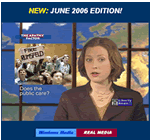 Liberty News-Report on Impeachment
Liberty News-Report on Impeachment
 Pink- Dear Mr. President
Pink- Dear Mr. President
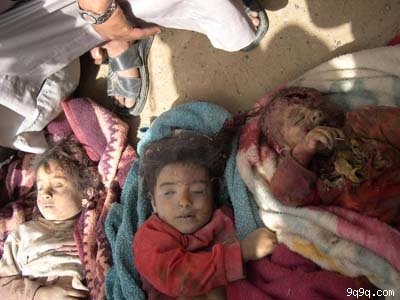 A few of the Iraqi "insurgents" the US Marines murdered
A few of the Iraqi "insurgents" the US Marines murdered
 Lies and the Lying Liars
Lies and the Lying Liars

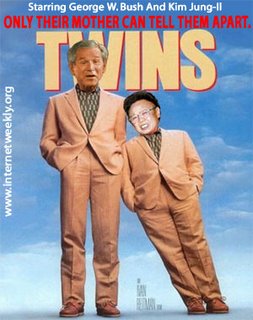 Dancing all night with military dictators
Dancing all night with military dictators
 You are a Donkey, Mr. Danger!
You are a Donkey, Mr. Danger!
 'President' Al Gore
'President' Al Gore
 Ahmadinejad's Letter To Bush
Ahmadinejad's Letter To Bush
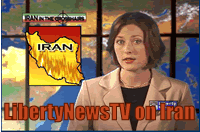

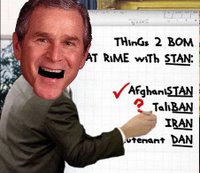


2 Comments:
dear mohammad-
thanks for the comment you left on my blog about responding to ahmadinejhad. i responded to your comment on my blog but i will copy and paste it here too:
Mohammad- I think you are pointing to some really hard issues which I was actually planning on writing about in a future post. Some time ago, I wrote a post on the No War on Iran site about the duplicitous ways in which "the west" tries to deal with our part of the world by trying to say that they don't want to attack us but our governments. Well, at the end of the day, bombs and sanctions attack "us", not our governments, right? So disowning ahmadinejhad would feed into that dangerous rhetoric. On the other hand, what are the other options for condemning ahmadinejhad? It is true that he was elected by some millions of people, but it seems to me they largely voted for him because of what he promised to bring about at home, and not because of his foreign policy visions. But like I said, I'll try to think more about this and post something on it either here or on the other site
Niki – I think a civilized dialogue is the only solution. We cannot criticize a government unless we accept the fact that it’s a legitimate one and there are people who support it. Who these people are, I don't know. I have never met them. Majority of the people who I meet in this virtual world disown this government outright and don't even want to hear an opposing view. I remember a post that I read a while back in Sibil’s blog. She was talking about the IRI's official flag. Her point was that we can't even fly the country's official flag in our homes or our gatherings. That's just one example of the level of hostility towards this government.
Post a Comment
<< Home